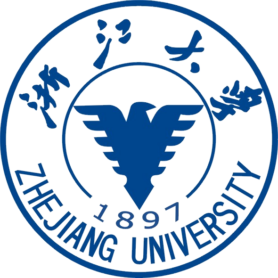
The Power & Energy Society (PES) provides the world’s largest forum for sharing the latest in technological developments in the electric power industry, for developing standards that guide the development and construction of equipment and systems, and for educating members of the industry and the general public. Members of the Power & Energy Society are leaders in this field, and they — and their employers — derive substantial benefits from involvement with this unique and outstanding association.
The Mission of PES is:
To be the leading provider of scientific and engineering information on electric power and energy for the betterment of society, and the preferred professional development source for our members ~ Approved by the IEEE PES Governing Board, 17 July 2003
PES’ Field of Interest is:
The scope of the Society embraces research, development, planning, design, construction, maintenance, installation and operation of equipment, structures, materials and power systems for the safe, sustainable, economic and reliable conversion, generation, transmission, distribution, storage and usage of electric energy, including its measurement and control.
PES’ Strategic Plan:
IEEE Power & Energy Society Strategic Direction: 2021 – 2025 Plan (PDF document)

China Society for Electrical Engineering (CSEE) is a national, academic and non-profit social organization voluntarily composed of scientific and technical workers and relevant units engaged in electrical engineering related fields and registered according to law. It was established in 1934. Its office is located in Beijing and is affiliated with the State Grid Corporation of China, Accept the professional guidance, supervision and administration of the registration authority of associations, the Ministry of civil affairs of the people’s Republic of China and the China Association for science and technology.
The purpose of China Society of Electrical Engineering: unite and mobilize the majority of Electrical Engineering Science and technology workers, promote the prosperity and development of Electrical Engineering Science and technology, promote the popularization and promotion of Electrical Engineering Science and technology, and promote the growth and improvement of electrical engineering scientific and technological talents; Serve economic and social development, improve the scientific quality of the whole people, serve scientific and technological workers and members, and contribute to the construction of an innovative country and a socialist harmonious society.

Zhejiang University is a prestigious institution of higher education located in Hangzhou, China. With a history spanning over 120 years, the university has established itself as a leading academic and research powerhouse in China and internationally.
Zhejiang University is known for its commitment to excellence in education and innovation. It boasts a strong and diverse faculty, including many renowned scholars and leaders in various fields. The university has produced numerous notable figures, including Nobel laureates, recipients of the highest national science and technology awards, “Two Bombs, One Satellite” Memorial Medal recipients, and esteemed individuals recognized with national honors. Additionally, Zhejiang University has a significant number of academicians from prestigious institutions such as the Chinese Academy of Sciences and the Chinese Academy of Engineering.
The university places great emphasis on academic research and technological innovation. It actively serves major strategic needs and endeavors to build national strategic technological capabilities. Zhejiang University has established a range of open and international high-end academic platforms, attracting scholars, masters, and high-level research teams from various disciplines. This collaborative environment has resulted in significant scientific and technological achievements, including the National Science and Technology Progress Special Award.
Zhejiang University’s dedication to the development of philosophy and social sciences is evident in its strong momentum in this field. Its cultural heritage and innovative outcomes, such as the “Comprehensive Series of Chinese Historical Paintings,” “Chinese Ritual Collections,” and Dunhuang studies, have made a widespread impact both domestically and internationally.
Guided by Xi Jinping’s thought on socialism with Chinese characteristics for a new era, Zhejiang University’s strategic orientation aims to be of higher quality, more exceptional, more respected, and more visionary. The university is committed to leading thinking and knowledge innovation while cultivating a new generation of individuals capable of shouldering the responsibility of national rejuvenation, contributing significantly to the modernization of China and the progress of human civilization.

